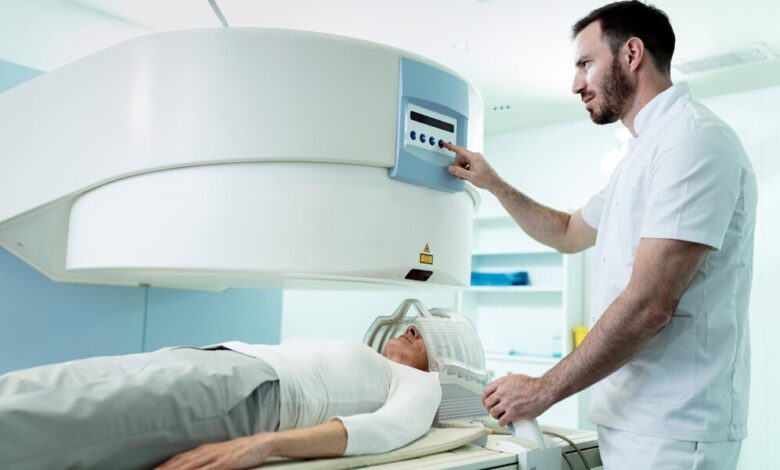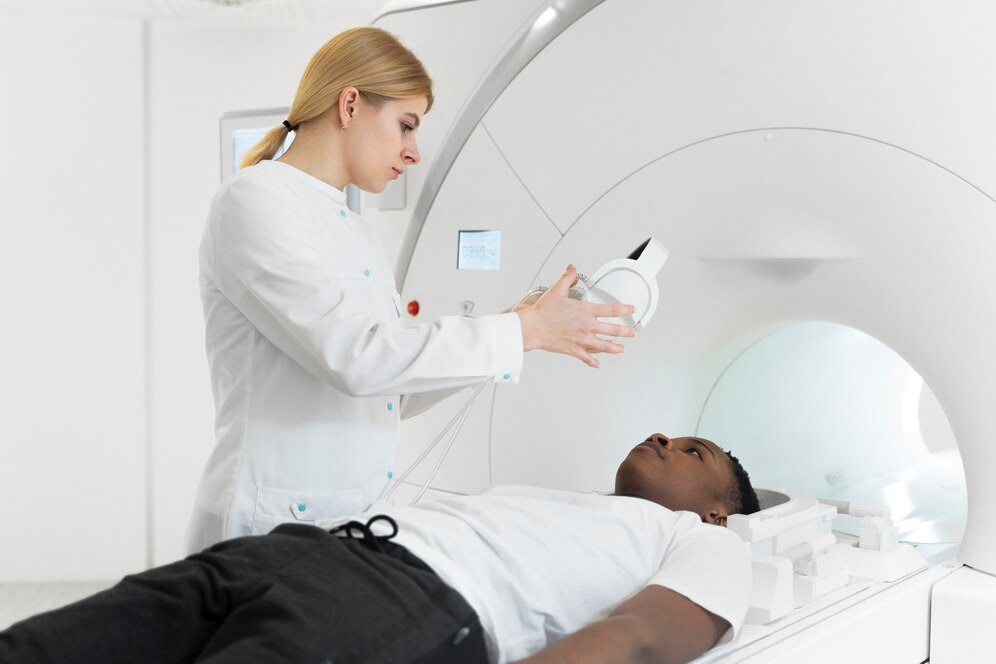Understanding TMS Treatment: An Emerging Health Disorders

In recent years, Transcranial Magnetic Stimulation (TMS) has emerged as a promising remedy alternative for individuals suffering with various mental health situations, mainly the ones who have now not spoke back nicely to standard strategies which include medication and psychotherapy. As attention and accessibility to this remedy grow, it’s important to recognize what TMS is, the way it works, its effectiveness, and its potential facet consequences.
What is Transcranial Magnetic Stimulation (TMS)?
Transcranial Magnetic Stimulation is a non-invasive system that makes use of magnetic fields to stimulate nerve cells inside the mind. The primary reason of TMS is to deal with sufferers with essential depressive disorder (MDD) and other intellectual health situations. It is in particular beneficial for people who’ve not discovered remedy via traditional remedies like antidepressants.
During a TMS consultation, an electromagnetic coil is placed in opposition to the affected person’s scalp close to the forehead. The coil then sends painless magnetic pulses to stimulate nerve cells in the location of the brain involved in mood regulation, mainly the prefrontal cortex. This stimulation is thought to persuade neurotransmitter tiers and interest within the brain, which could lead to stepped forward mood and reduction in depressive signs and symptoms.
The Mechanism Behind TMS
TMS operates on the precept of electromagnetic induction. When the magnetic coil is activated, it generates a magnetic field that passes via the cranium and reaches the mind tissue. This magnetic subject induces an electric powered modern-day inside the brain, leading to depolarization of neurons. The repetitive stimulation of the centered mind region can modulate neuronal hobby, both growing or reducing it, relying at the frequency and sample of stimulation.
One of the critical elements of TMS is its potential to target unique regions of the mind. For example, in treating depression, the left dorsolateral prefrontal cortex (DLPFC) is often the focus because it is associated with temper law. By stimulating this region, TMS objectives to correct the strange neural hobby that is typically seen in depressed individuals.
Applications of TMS Treatment
While TMS is most normally related to the treatment of foremost depressive ailment, its utility has expanded to other intellectual fitness conditions and neurological problems. Some of the areas where TMS is showing promise consist of:
1. Major Depressive Disorder (MDD)
MDD is the most properly-studied condition for which TMS is used. Research has shown that TMS can be pretty powerful for sufferers who’ve no longer responded to at the least one antidepressant medication. In many cases, TMS has brought about extensive improvement in depressive signs, and in a few times, it has led to whole remission.
2. Anxiety Disorders
TMS is likewise being explored as a treatment for numerous tension problems, together with generalized anxiety sickness (GAD), panic sickness, and submit-traumatic pressure disease (PTSD). The mechanism of motion is just like that during depression treatment, with the magnetic stimulation geared toward altering the mind circuits involved in anxiety regulation.
three. Obsessive-Compulsive Disorder (OCD)
The FDA has permitted TMS for the remedy of OCD. Patients with OCD regularly enjoy strange brain pastime within the cortical-striatal-thalamic-cortical circuit. TMS objectives those regions to assist normalize activity and reduce signs.
four. Bipolar Disorder

TMS is being studied as an adjunctive treatment for bipolar sickness, mainly at some stage in depressive episodes. While extra studies is needed, early studies advise that TMS may also assist stabilize temper and decrease the severity of depressive signs and symptoms in bipolar patients.
five. Chronic Pain and Migraines
Beyond intellectual health, TMS is also being investigated for its potential in treating chronic pain situations and migraines. By focused on unique mind regions associated with ache belief, TMS can also offer relief to people tormented by these debilitating conditions.
Efficacy of TMS Treatment
The effectiveness of TMS can vary relying on numerous elements, consisting of the severity of the circumstance being treated, the particular protocol used, and the man or woman’s reaction to the treatment. However, severa studies have tested that TMS is an effective remedy, specifically for despair.
According to a meta-analysis posted in the Journal of Psychiatric Research, about 50-60% of human beings with melancholy who’ve no longer responded to remedy revel in a clinically meaningful development of their signs with TMS. Around one-1/3 of those patients achieve full remission.
For tension and OCD, the studies remains evolving, but initial effects are promising. For example, a examine published in Brain Stimulation confirmed that TMS ended in extensive improvement in OCD signs and symptoms, with a few patients experiencing a reduction in symptom severity by way of as a lot as 30-forty%.
The TMS Treatment Process
TMS treatment usually entails every day sessions over 4 to six weeks. Each consultation lasts about 20 to 40 mins, at some point of which the affected person remains conscious and alert. The affected person is seated in a snug chair, and the TMS device is positioned over the top. The electromagnetic coil gives you repetitive pulses, which the affected person may sense as tapping or knocking sensations at the scalp.
One of the advantages of TMS is that it’s miles a non-invasive and outpatient manner, that means it doesn’t require anesthesia, and patients can resume everyday sports at once after every session. However, consistency is essential, as the blessings of TMS are cumulative and generally end up great after numerous weeks of remedy.
Side Effects and Risks of TMS
TMS is typically well-tolerated, with maximum side outcomes being slight and brief. The most common side effect is scalp discomfort or mild headaches at some point of or after the treatment. These signs and symptoms generally diminish after the primary few periods.
Less commonplace but more extreme side consequences include seizures, even though this danger is extremely low, especially when TMS is finished via a educated professional following hooked up safety recommendations. Some patients can also revel in mood swings or an growth in tension, in particular at the start of remedy, however these signs and symptoms usually subside as the treatment progresses.
The Future of TMS
As studies continues to evolve, the scope of TMS is expanding. Researchers are exploring one of a kind protocols, which includes varying the frequency and duration of stimulation, to enhance the effectiveness of TMS for various situations. Additionally, TMS is being studied in combination with other healing procedures, including cognitive-behavioral remedy (CBT), to determine whether or not blended remedies can offer superior effects.
There is likewise developing hobby in the usage of TMS as a preventive treatment. For instance, individuals at excessive risk for melancholy relapse might benefit from renovation TMS periods to save you the recurrence of depressive episodes.
Accessibility and Cost Considerations
One of the challenges with TMS remedy is accessibility. Although it’s far becoming extra extensively available, it’s miles nevertheless no longer as handy as traditional remedies like medication or psychotherapy. Cost also can be a barrier, as TMS is exceedingly highly-priced, and insurance coverage varies.
However, as greater evidence helps its efficacy, coverage organizations are more and more covering TMS for positive situations, specially when other remedies have failed. Patients interested by TMS need to seek advice from their healthcare company to discover their alternatives and determine whether or not TMS is a possible and reachable remedy for them.
Conclusion
Transcranial Magnetic Stimulation represents a considerable advancement inside the subject of mental fitness treatment, imparting desire to individuals who’ve struggled with remedy-resistant conditions. While it isn’t always a treatment-all and won’t be suitable for each person, the developing frame of studies assisting its efficacy, coupled with its non-invasive nature and comparatively low danger of aspect effects, makes TMS a valuable alternative in the arsenal in opposition to mental fitness issues.



